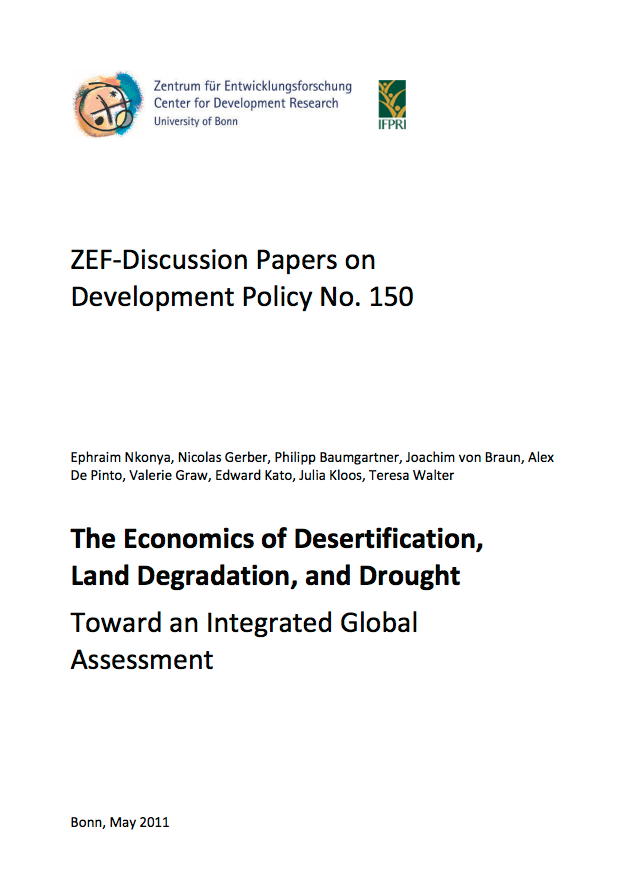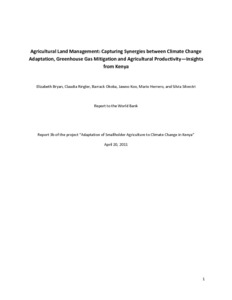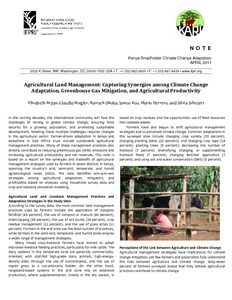Focal point
Location
About IFPRI
The International Food Policy Research Institute (IFPRI) provides research-based policy solutions to sustainably reduce poverty and end hunger and malnutrition in developing countries. Established in 1975, IFPRI currently has more than 500 employees working in over 50 countries. It is a research center of theCGIAR Consortium, a worldwide partnership engaged in agricultural research for development.
Vision and Mission
IFPRI’s vision is a world free of hunger and malnutrition. Its mission is to provide research-based policy solutions that sustainably reduce poverty and end hunger and malnutrition.
What We Do
Research at IFPRI focuses on six strategic areas:
- Ensuring Sustainable Food Production: IFPRI’s research analyzes options for policies, institutions, innovations, and technologies that can advance sustainable food production in a context of resource scarcity, threats to biodiversity, and climate change. READ MORE
- Promoting Healthy Food Systems: IFPRI examines how to improve diet quality and nutrition for the poor, focusing particularly on women and children, and works to create synergies among the three vital components of the food system: agriculture, health, and nutrition. READ MORE
- Improving Markets and Trade: IFPRI’s research focuses on strengthening markets and correcting market failures to enhance the benefits from market participation for small-scale farmers. READ MORE
- Transforming Agriculture: The aim of IFPRI’s research in this area is to improve development strategies to ensure broad-based rural growth and to accelerate the transformation from low-income, rural, agriculture-based economies to high-income, more urbanized, and industrial service-based ones. READ MORE
- Building Resilience: IFPRI’s research explores the causes and impacts of environmental, political, and economic shocks that can affect food security, nutrition, health, and well-being and evaluates interventions designed to enhance resilience at various levels. READ MORE
- Strengthening Institutions and Governance: IFPRI’s research on institutions centers on collective action in management of natural resources and farmer organizations. Its governance-focused research examines the political economy of agricultural policymaking, the degree of state capacity and political will required for achieving economic transformation, and the impacts of different governance arrangements.
Research on gender cuts across all six areas, because understanding the relationships between women and men can illuminate the pathway to sustainable and inclusive economic development.
IFPRI also leads two CGIAR Research Programs (CRPs): Policies, Institutions, and Markets (PIM) andAgriculture for Nutrition and Health (A4NH).
Beyond research, IFPRI’s work includes partnerships, communications, and capacity strengthening. The Institute collaborates with development implementers, public institutions, the private sector, farmers’ organizations, and other partners around the world.
Resources
Displaying 636 - 640 of 1521The Economics of Desertification, Land Degradation, and Drought
Since the publication of the Report of the Brundtland Commission (Our Common Future) in 1987, and the consequent Earth Summit on sustainable development, global attention on natural resource scarcity and degradation has been increasing, because of climate change and rising food and energy prices. This awareness, in turn, has led to growing interest in land investments by the private and public sectors. Despite this interest, however, land degradation has not been comprehensively addressed at the global level or in developing countries.
The Gender Implications of Large-Scale Land Deals (Policy Brief )
Includes situation prior to acquisition, contract negotiations, employment, environmental impacts, crop production, ancillary services, responsibilities of key actors – the international community, national governments, local governments, communities and civil society, domestic and international investors.
Agricultural land management: Capturing synergies among climate change adaptation, greenhouse gas mitigation and agricultural productivity
Agricultural land management: Capturing synergies among climate change adaptation, greenhouse gas mitigation, and agricultural productivity
As Implicações dos Negócios de Terras em Grande Escala no Género
Quer sejam vistos como “desapropriação de terras” ou como investimentos agrícolas para o desenvolvimento, os negócios de terras em grande escala efectuados por investidores em países em desenvolvimento estão a gerar uma atenção considerável. No entanto, investidores, decisores, autoridades e outras principais partes interessadas têm prestado pouca atenção a uma dimensão destes negócios que é essencial para realmente compreender os seus impactos: o género.







